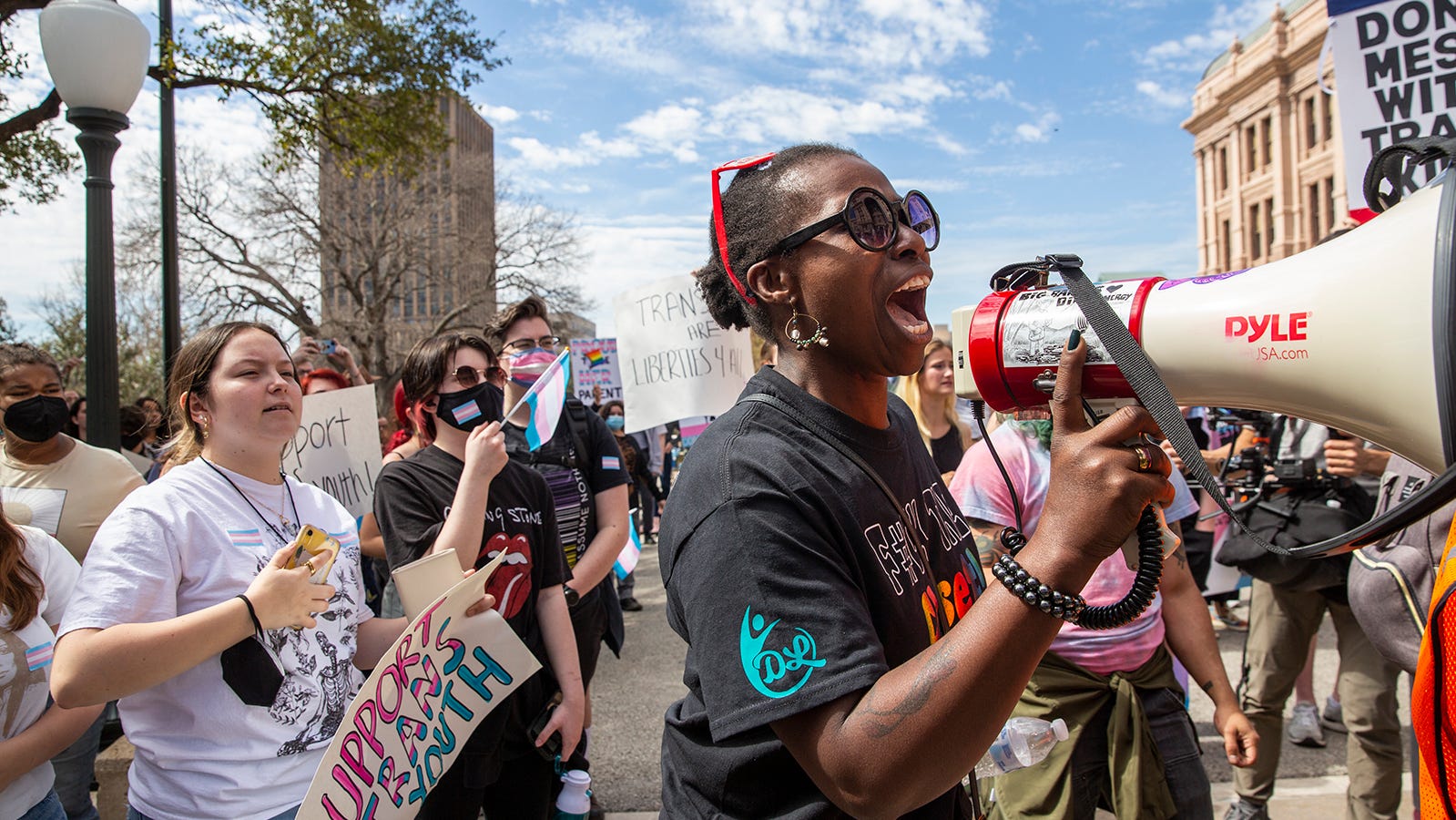
Supreme Court will hear case about bans on gender-affirming care for minors
A case involving a law in Tennessee that restricts puberty blockers and hormone therapy for transgender minors will be heard by the Supreme Court.
Scripps News
Organizations and advocates for transgender youth blasted the U.S. Supreme Court’s decision June 18 that upheld Tennessee’s ban on gender-affirming care for minors.
Advocates said the high court’s decision was a major blow to transgender rights and medical organizations that have endorsed gender-affirming care for minors.
The decision came about five years after the court ruled that transgender, gay and lesbian people are protected by a landmark civil rights law barring sex discrimination in the workplace.
In the Tennessee case, the high court said that preventing minors from using puberty blockers and hormone therapy does not violate the equal protection clause of the 14th Amendment.
The Tennessee House Republican Caucus cheered the ruling as a “proud day for the Volunteer state and for all those who believe in protecting the innocence and well-being of America’s children.”
The Tennessee Equality Project, an advocacy group that fights anti-LGBTQ+ legislation, said in a statement that the organization was “profoundly disappointed” by the high court’s decision. The decision further erodes the rights of transgender children, their families and doctors, the group said.
“Gender-affirming care is proven to save lives,” the group’s statement said. “Major medical associations, including the American Academy of Pediatrics and the American Medical Association, support gender-affirming medical and psychological care because it saves lives and improves mental well-being.”
Kimberly Inez McGuire, executive director of Unite for Reproductive & Gender Equity, said the Supreme Court chose “cruelty over care.”
“This decision upholds a dangerous and deeply unjust law that strips families of their rights, criminalizes love and support and puts the lives of young people at risk,” McGuire said in a statement.
The decision means transgender adolescents who live in states that restrict gender-affirming care could have difficulty accessing such care, said Lindsey Dawson, associate director for HIV policy and director for LGBTQ health policy at KFF, a health policy nonprofit.
Dawson said 25 states have gender-affirming care bans in effect, though only Arizona and New Hampshire ban gender-reassignment surgery. Some transgender youth who live in states restricting care such as puberty blockers or hormone therapy might choose visit states without such bans. However, that option wouldn’t be an option for transgender youth and their families who lack the financial means to travel for care.
“If you are minor who needs access to this medically necessary care, you simply can’t get it if you live in one of these states,” Dawson said.
Trump administration targets transgender care
The decision comes as President Donald Trump’s administration has targeted other aspects of transgender care.
After taking office, Trump signed an executive order stating the United States would not “fund, sponsor, promote, assist, or support” gender-affirming care.
In April, the federal agency that oversees Medicare and Medicaid told states not to use Medicaid funding to pay for gender-affirming care for minors.
Dr. Mehmet Oz, administrator of the Centers for Medicare & Medicaid Services, said the federal agency will stop paying for gender reassignment operations or hormone treatments for those under 18.
A 2023 study in the medical journal JAMA Network Open found gender-affirming surgeries were most popular with young adults. More than 25,000 people ages 19 to 30 received these procedures from 2016 through 2019. Fewer than 8% of patients − a total of 3,678 − were 12- to 18-year-olds.
Officials with the Trevor Project, an LGBTQ+ youth suicide prevention and crisis intervention organization, said the decision means children in some states won’t get the care they need.
A Trevor Project study found that anti-transgender state laws are linked to an increase in suicide attempts among transgender young people.
“It is deeply troubling to see the country’s highest court decide that politicians can make certain medicines illegal for some young people, while allowing them to remain readily accessible for others,” said Jaymes Black, CEO of The Trevor Project “That is discrimination – period.”
Contributing: Maureen Groppe,









